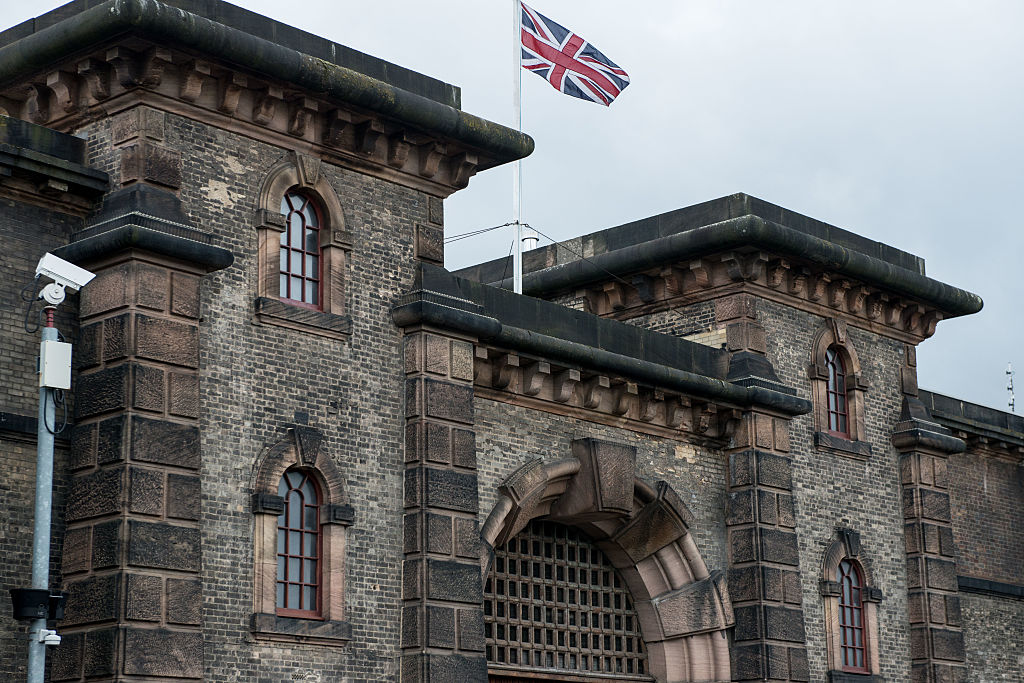Labour MP Zarah Sultana has caused a bit of a stir by proposing that prisoners be allowed to skip the queue for the Covid-19 vaccine. She’s even been Steerpiked, a rite of passage for any aspiring ‘Loony Left’ Labour MP. If anything, her compassion for lags marks a welcome development in someone who six years ago was pledging to celebrate the deaths of Tony Blair and Benjamin Netanyahu.
Sultana asked vaccines minister Nadhim Zahawi at the science and technology select committee yesterday whether the government had considered ‘prioritising vaccinating detainees as well as those who work in prisons’.
Despite the backlash to Sultana’s suggestion, the problem is that there’s evidence to back up her argument.
Some things are right even if Zarah Sultana says so
Zahawi said those within the prison estate ‘who fall into the most vulnerable categories’ would be prioritised, but the prison estate itself is a vulnerable category. A 2018 report by the Commons health and social care committee concluded:
‘Too many prisoners remain in unsafe, unsanitary and outdated establishments. Violence and self-harm are at record highs. Most prisons exceed their certified normal accommodation level and a quarter of prisoners over the last two years have lived in overcrowded cells. Staffing shortages have forced overstretched prisons to run restricted regimes, severely limiting not only opportunities for prisoners to engage in purposeful activity, but access to health and care services both in and outside prisons.’
Prisoners are twice as likely as the general population to suffer from respiratory conditions, five times as likely to be infected with tuberculosis and, at 80 per cent, are five times as likely to smoke. The mortality rate for inmates in England is 50 per cent higher than the population as a whole.
Despite their heightened health vulnerabilities, prisoners have a quarter fewer hospital appointments and twice as many missed appointments while one-in-five pregnant prisoners miss midwife appointments and almost one-third do not attend obstetrician appointments. In its 2018 round of inspections, the Care Quality Commission identified regulatory breaches in 47 per cent of cases and determined that prisons ‘frequently struggle to deliver safe and effective services’.
Although custodial Covid-19 cases have not been as high as initially forecast, the virus is more prevalent on the inside. Over-60s in custody are twice as likely to contract coronavirus as those at liberty, yet even among under-30s the number of cases per 1,000 of the population is 1.8 times that seen in the community. This is compounded by research suggesting prisoners ‘may hide symptoms due to stigma, lack of trust in medical confidentiality in prisons, and to avoid prolonged medical isolation’.
It is therefore unsurprising that, since early December, prisoner Covid cases have risen by 70 per cent and fatalities by 50 per cent. Of course, inmates are not the only ones at risk. In the first six months of the pandemic, 3,189 prison and probation service employees tested positive for Covid-19, 21 died with the virus cited as a contributory factor and 1,007 took coronavirus-related sick leave.
If prisons are essentially giant petri dishes, they are petri dishes that regularly tip their contents out onto the wind. The most recent quarterly statistics, covering April-June 2020, record 13,290 releases from prison across that three-month period. While all symptomatic prisoners are tested as policy, the potential for asymptomatic and pre-symptomatic cases to be liberated into the community is obvious.
Zarah Sultana’s solution isn’t as new, or as radical, as it might sound. Drawing on a review of 28 studies into prison epidemics, including of Covid-19, Professor Seena Fazel recommended in November that inmates be among the priority groups when a vaccine was eventually found. He warned that prisons were ‘high-risk settings for the transmission of contagious diseases’ and advised that early vaccination of prisoners was crucial ‘to prevent further spread of the disease’.
The public health rationale is important but it is not the only grounds for making prisoners a priority. There is also the moral dimension. Yes, prisoners are under lock and key because they broke the law but their punishment is deprivation of liberty, not being put at disproportionate risk of a deadly virus. If we want to have the highest incarceration rate in Western Europe, we have to accept responsibility for the welfare of all those we bang up.
Inmates are in jeopardy not only from Covid-19 itself but from the draconian measures introduced to control its spread. The Court of Appeals has ruled that ‘the current conditions in prisons represent a factor which can properly be taken into account in deciding whether to suspend a sentence’ because ‘the impact of a custodial sentence is likely to be heavier during the current emergency than it would otherwise be’. If the situation in prisons is so severe that it can merit suspending a custodial sentence, it is severe enough to merit priority in allocation of the vaccines.
Doing so would outrage the general public, so in the spirit of courage and principle that liberals are famed for, I propose doing it on the quiet, or at least framing it as a question merely of protecting prison officers. No doubt the government would feel uncomfortable being on the same side as a Corbynista MP but some things are right even if Zarah Sultana says so.







Comments